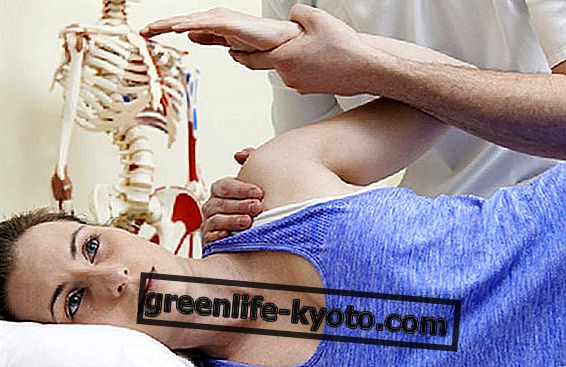Excess calcium may depend on ongoing inflammation or malfunction of the thyroid, and causes constipation, gastric acidity, nausea and stomach problems. Let's find out how to cure it.
>
Constipation among the causes of excess calcium

Symptoms of excess calcium
When the level of calcium in the blood exceeds 10.5 mg / dl, we speak of hypercalcaemia, or excess calcium .
Vitamin D is very important in the regulation of calcium absorption, as well as lactose, phosphorus and some amino acids. Two hormones are equally involved and responsible for balancing the deposit of blood in the bones, kidneys and blood: the parathyroid hormone and calcitonin.
When the mineral in circulation in our body is really too much, there is a symptomatology linked to the level and quantity of excess calcium recorded, absolutely not to be underestimated.
Among the most recurrent symptoms of excess calcium, there are: constipation, gastric acidity, nausea and problems related to the stomach, such as abdominal pain.
Bone pains, psychological disorders such as apathy or depression, weakness, excessive thirst and dehydration can also be recorded. In the most serious cases there is an alteration of the blood pressure, the appearance of allergies up to arrhythmia, renal failure and coma.
The causes of excess calcium
When calcium is too much, it means that something is not provided in a balanced way to the body (excessive intake of vitamin D) or that hormonal dysfunctions or other ailments are in progress.
Among the known causes of excess calcium there may be: infections or inflammatory processes in progress, thyroid dysfunctions that can also be associated with benign tumors, hyperthyroidism, tumors with bone metastases, breast or lung tumors, Paget, bone fractures, high protein diets or use of too many diuretics, hormonal overdoses or lithium therapies.
Sometimes even excessive stress can be a cause of excess calcium in the body.
Calcium excess and nutrition
The daily calcium requirement ranges from 800 to 2500 milligrams maximum, depending on age. Although a high intake of calcium is necessary for newborns, younger children and adolescents, to ensure that their bones grow well and harmoniously, and for pregnant or menopausal women, this does not mean that prolonged care and administration excessive calcium can do well, far from it. In fact, it can also present imbalances or dysfunctions related to too much assimilated calcium.
To overcome the excess of calcium, we must first remineralise the organism, or re-establish the lost balance of the minerals necessary for the body to function properly.
To do this it is very important to introduce a high percentage of fresh and seasonal fruit and vegetables into the main daily meals in the diet. Furthermore, taking so much fiber, cereals and legumes can decrease the calcium doses present in the body.
Very important to maintain the right proportions of calcium and other minerals and to avoid imbalances or excesses are also tubers, algae, shoots, soya and derivatives (tofu, tempeh), extra virgin olive oil cold pressed, herbal teas and infusions. Do not forget the water, which in this case must be absolutely low in minerals.













